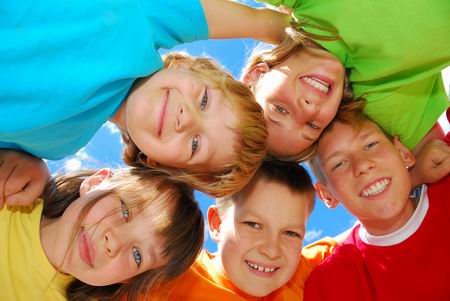
Parenting in a Pandemic: The Lessons We’ve All Learned
May 30, 2025
How to Manage Parenting Stress: Expert Tips
May 31, 2025As parents, one of the most powerful things we can do is tune in to our children’s emotions—especially as they grow and change through different developmental stages. Each phase of childhood brings unique emotional challenges and needs, and when we understand those shifts, we’re better equipped to respond with empathy, patience, and connection.
Let’s walk through how your child’s emotional world evolves—and what you can do to support them at every step.
Infancy (0–12 months): The Language of Crying and Cuddles
Babies may not speak, but they’re constantly communicating. Their emotional expression is raw, direct, and physical—through crying, cooing, fussing, and snuggling.
What’s happening emotionally?
Your baby is developing a sense of safety and trust in the world. Emotional regulation begins with you—your calm voice, your presence, your gentle touch.
How to support them:
-
Respond consistently to cries. This builds a sense of security.
-
Hold and comfort often—don’t worry about “spoiling” a baby.
-
Use eye contact, smiles, and soothing tones to build emotional connection.
Toddlerhood (1–3 years): Big Feelings in Tiny Bodies
Toddlers are passionate and unpredictable. One minute they’re giggling, the next they’re in meltdown mode.
What’s happening emotionally?
They’re discovering independence—and testing boundaries. But their emotional control isn’t there yet, which is why tantrums are common.
How to support them:
-
Name their feelings: “You’re mad because we have to leave the park.”
-
Stay calm when they’re not—your regulation helps them regulate.
-
Offer simple choices to give them a sense of control.
Preschool (3–5 years): Learning Through Play and Imitation
Preschoolers are imaginative, curious, and starting to build empathy. They often mimic adult behaviors and start to understand emotions in others.
What’s happening emotionally?
Their self-awareness is growing. They may feel embarrassed, proud, or frustrated—but they still need help naming and managing these emotions.
How to support them:
-
Encourage pretend play as a safe space for emotional exploration.
-
Talk about feelings openly and model healthy expression.
-
Teach simple coping skills, like taking deep breaths.
Early School Age (6–9 years): Navigating Social Worlds
As children enter school, friendships and social comparison begin to shape their self-esteem. They crave acceptance and start developing a moral compass.
What’s happening emotionally?
They’re more aware of social dynamics, peer pressure, and fairness. They may also begin to internalize stress from school or relationships.
How to support them:
-
Validate their emotions: Avoid minimizing their struggles.
-
Discuss social situations with curiosity, not judgment.
-
Help them name and process complex feelings like jealousy or shame.
Pre-Teens (10–12 years): Identity and Insecurity
This stage is full of transitions—physical, emotional, and social. Pre-teens often feel caught between childhood and adolescence.
What’s happening emotionally?
They start to question who they are and where they belong. Mood swings and sensitivity increase, even if they’re not yet teens.
How to support them:
-
Be a safe place to land without pushing advice too fast.
-
Encourage journaling or creative outlets to express inner thoughts.
-
Respect their privacy, while staying gently involved.
Teens (13–18 years): The Emotional Rollercoaster
Adolescents may seem distant, irritable, or intense—but behind that is a young adult navigating deep emotions, identity, and autonomy.
What’s happening emotionally?
Hormonal shifts and brain development heighten emotional responses. They’re seeking independence but still need emotional grounding.
How to support them:
-
Listen more than you speak—they need to be heard.
-
Avoid overreacting to their mood swings.
-
Keep communication open, even when it’s tough.
Final Thoughts: Be the Calm in Their Storm
You don’t need to fix every feeling. Just being emotionally available—consistently, patiently, and compassionately—helps your child feel safe to feel. Emotional intelligence starts with co-regulation, and it grows through connection. Every stage is a chance to build trust and deepen your bond.




